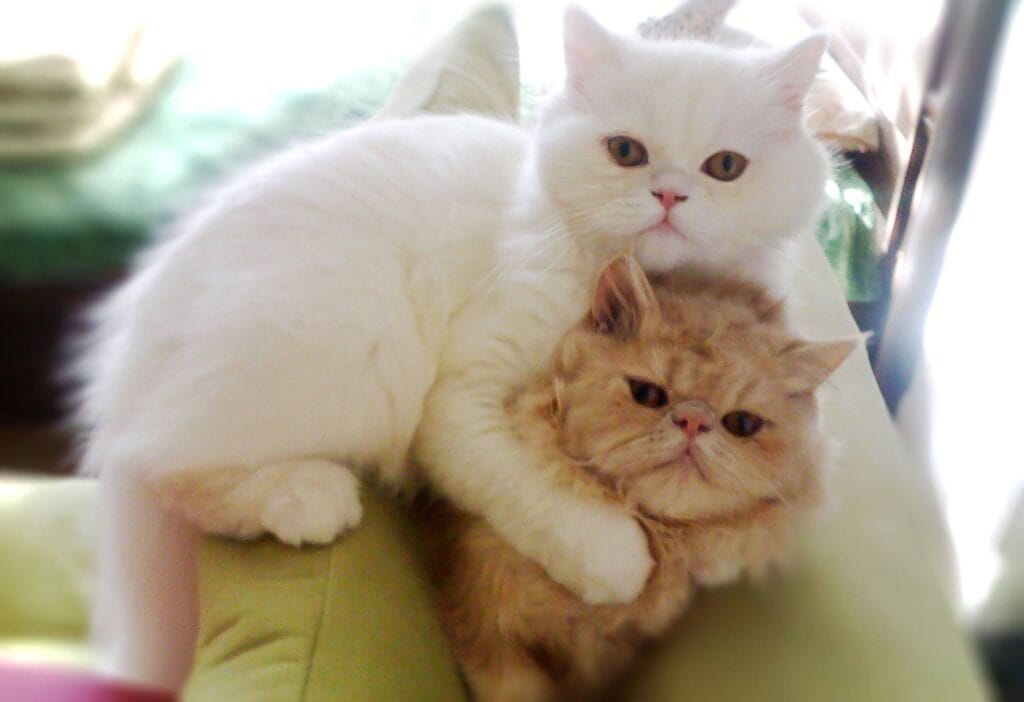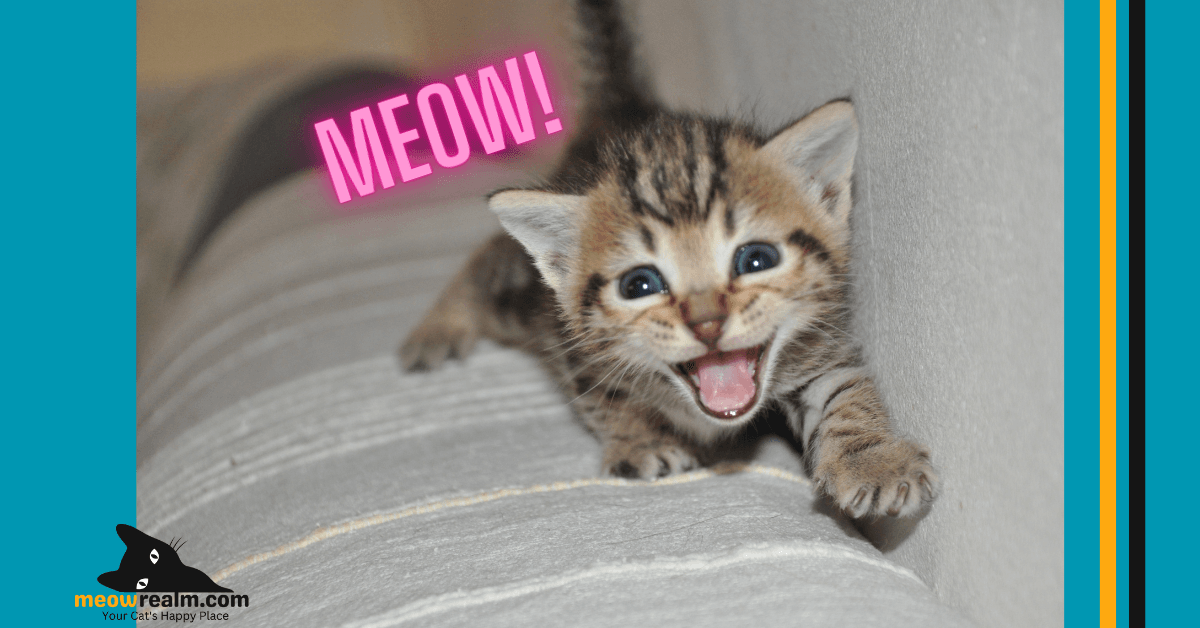Cats meow for a variety of reasons, and as a pet owner, it’s important to understand how to respond. One crucial piece of advice is “don’t give attention to your cat if they’re meowing” unnecessarily. This may sound counterintuitive, but not giving attention to your cat when they meow can actually improve their behavior over time. This article will dive into why ignoring your cat’s meowing can be beneficial, how it works, and the best techniques to make this strategy effective.
By understanding the underlying causes of meowing and applying consistent behavioral strategies, you can help train your cat to meow only when it’s truly necessary. In this guide, we’ll cover various aspects, including the psychology behind meowing, common mistakes owners make, and how to successfully ignore the behavior.

Why Do Cats Meow?
Before discussing why you should not give attention to your cat if they’re meow ing, it’s crucial to understand why cats meow in the first place. Cats use meow ing as a form of communication, especially with humans. Here are some common reasons why cats meow:
- Seeking Attention: Cats often meow because they want attention, whether it’s for play, affection, or simply acknowledgment.
- Hunger or Thirst: Meowing can also be a signal that the cat is hungry or thirsty.
- Medical Issues: In some cases, excessive meowing can indicate a medical issue that requires attention.
- Stress or Anxiety: Changes in their environment can lead to increased vocalization, such as moving houses or introducing new pets.
Understanding these reasons helps us address meowing effectively. However, when a cat starts meowing simply to gain attention, ignoring the behavior is often the best course of action.
The Psychology Behind Ignoring Meowing
When we say, “don’t give attention to your cat if they’re meowing,” it’s important to understand the psychology behind this advice. Cats learn through reinforcement, and if they receive attention every time they meow, they will continue to do so. By ignoring the behavior, you remove the reinforcement, and over time, the meowing will decrease.
- Positive Reinforcement vs. Negative Reinforcement: If you respond to your cat’s meows by giving them what they want, you’re providing positive reinforcement. On the other hand, ignoring the meows serves as negative reinforcement, which can eventually reduce the unwanted behavior.
- Breaking the Cycle: Cats are creatures of habit. If meowing always results in attention, they will see it as an effective strategy. To break the cycle, you need to stop rewarding the behavior.
The key is consistency. If you only ignore the meowing occasionally, the cat will remain confused, and the behavior is likely to continue.
How to Properly Ignore Your Cat’s Meowing
It might seem easy to say, “don’t give attention to your cat if they’re meowing,” but in practice, it can be challenging. Here are some effective ways to ignore your cat’s meowing without causing unnecessary stress for either of you:
1. Stay Consistent
One of the most important steps is to remain consistent. If you decide not to give attention to your cat when they’re meowing, make sure everyone in the household follows the same rule. Consistency is key to ensuring that your cat understands meowing will not yield any results.
2. Avoid Eye Contact
Cats interpret eye contact as a form of attention. When your cat is meowing, avoid looking at them directly. Even a glance can be perceived as a response, which might encourage the behavior to continue.
3. Don’t Speak to Them
Avoid talking to your cat when they’re meowing for attention. Even if you’re telling them to stop, your voice provides the attention they’re seeking. Instead, wait for a quiet moment to interact with your cat.
4. Reward Quiet Behavior
While you should not give attention to your cat if they’re meowing, it’s important to reward them when they’re quiet. Positive reinforcement when they’re calm will help them understand that quiet behavior results in attention, while meowing does not.
Common Mistakes to Avoid
When implementing the strategy of ignoring your cat’s meowing, there are some common mistakes that cat owners should be aware of:
1. Giving In After a While
The biggest mistake you can make is to eventually give in after prolonged meow-ing. This teaches your cat that if they meow long enough, they will eventually get what they want. This inconsistency will make it harder to reduce the behavior.
2. Punishing the Cat
Punishing a cat for meow-ing is not effective and can damage the bond you share with your pet. Instead of punishment, simply ignore the behavior. Punishment can lead to anxiety and even more behavioral issues.
3. Not Identifying the Cause
Ignoring meow-ing is effective for attention-seeking behavior, but if your cat is meow-ing due to hunger, pain, or another need, ignoring them could be harmful. Always ensure that your cat’s basic needs are met before assuming the meow-ing is solely for attention.
When to Give Attention to Your Cat
While it’s generally good advice to not give attention to your cat if they’re meow-ing for no reason, there are instances where you should pay attention:
- Medical Concerns: If your cat’s meow-ing is unusual, continuous, or accompanied by other symptoms, it could indicate a health problem. In such cases, it’s crucial to consult a veterinarian.
- Stress and Anxiety: Major changes, such as moving to a new home or the addition of another pet, can cause anxiety in cats. Comforting them during these times is important.
Understanding when to ignore and when to respond is key to developing a healthy relationship with your cat.
Benefits of Ignoring Attention-Seeking Meowing
Ignoring your cat when they meow for attention can lead to several benefits, including:
- Reduced Unwanted Behavior: Over time, your cat will learn that meow-ing does not result in attention, and they will be less likely to use it as a tactic.
- Better Communication: When your cat understands that meow-ing doesn’t always lead to attention, they may begin to use other, more appropriate ways of communicating their needs.
- Calmer Environment: A cat that meows constantly for attention can be stressful for everyone in the household. By reducing unnecessary meow-ing, the overall atmosphere becomes calmer.
Tips for Success
Successfully ignoring your cat’s meow-ing requires patience and perseverance. Here are some tips to ensure you succeed:
1. Create a Routine
Cats thrive on routine. If your cat knows they will receive attention, playtime, and feeding at specific times, they’re less likely to meow outside of those times. Establishing a consistent routine can help reduce meow-ing.
2. Provide Enrichment
Boredom is a common reason for attention-seeking meow-ing. Ensure your cat has plenty of toys, scratching posts, and other forms of enrichment to keep them engaged when you’re not available.
3. Be Patient
Behavioral changes don’t happen overnight. It may take weeks or even months for your cat to learn that meow-ing doesn’t yield results. Stay patient, and remember that consistency is crucial.
Consistency is Key
The key takeaway is that if you want to reduce unnecessary meow ing, don’t give attention to your cat if they’re meow-ing for the wrong reasons. Ignoring this behavior can be challenging, especially if your cat is persistent, but with consistency and positive reinforcement for quiet behavior, you can effectively manage and reduce your cat’s meow ing over time.
Always ensure that your cat’s basic needs are met, and remember to provide plenty of enrichment and love when they’re quiet. By following these strategies, you can foster a peaceful and well-behaved pet that communicates effectively without resorting to excessive meow ing.


